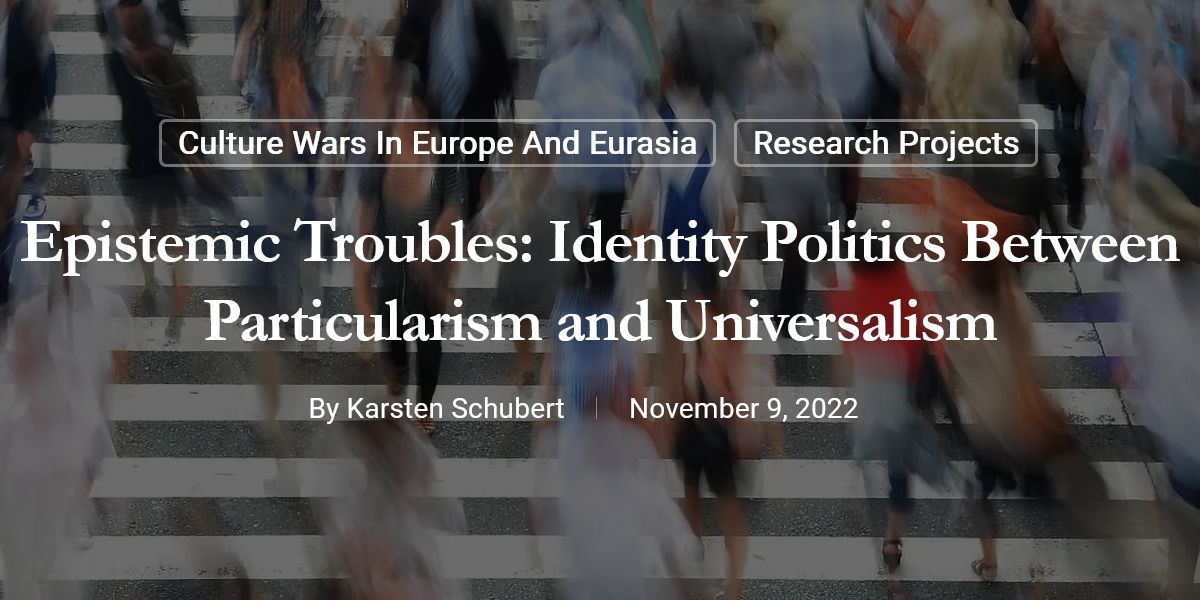The tension between universalism/particularism and reason/power in democracy. New English and German short texts

Identity politics is often criticized for being more about who says something than what is said. Identity politics is therefore seen as a threat to universal reason and as leading to particularism, relativism, and, as a consequence, pure power politics. In my current work, I address this problem of “positional fundamentalism” and reconcile two, at first sight, contradictory claims: that the standpoints of minorities discriminated against should be privileged in order to further democratize democracy, and that such standpoints are based on intersubjective and universal reason.
To democratize, identity politics usually has to assert itself against epistemic ignorances in hegemonic discourses through which reasonable arguments are blocked. Therefore, non-discursive forms of power politics (protests, “canceling,” blockades, disruptions) are often a necessary part of identity politics. This raises complicated questions about the relationship between power and reason in democracy. To answer them, I propose to conceive of democratization through identity politics as oscillating between these two poles - power and reason, particularism and universalism.
Two short blog articles are now published with central thoughts from my current work on these problems. A very short German text at Rise Jugendkulrut and a slightly longer English one at Illiberalism Studies Program. A longer journal article on these topics will follow soon.
Partikularismus und Universalismus in der Migrationsgesellschaft. Positionaler Fundamentalismus oder demokratische Identitätspolitik?
https://rise-jugendkultur.de/artikel/partikularismus-und-universalismus-in-der-migrationsgesellschaft/
PDF
Epistemic Troubles: Identity Politics Between Particularism and Universalism
https://www.illiberalism.org/epistemic-troubles-identity-politics-between-particularism-and-universalism/
PDF
Related Posts
- Identity politics and the democratization of democracy. Oscillations between power and reason in radical democratic and standpoint theory - New Article in Constellations, 4. October 2023
- New article: Democratization Through Filter Bubbles. Affordances of Closures and Openings (in German), 26. June 2023
- New Article: A matter of elites? Identity politics between democratic representation and elite capture - APuZ Schriftenreihe, 14. February 2023
- New Publication: Constructivist Identity Politics. Why Democracy Requires Particular Positioning (Journal of Political Science), 25. October 2021
- September program: Foucault and sexual liberation, academic freedom and authoritarianism, identity politics and polarization, the future of radical democracy, neoliberalism and anti-genderism, 5. September 2021
UniversalismParticularismReasonPowerIdentity PoliticsRadical Democracy
231 Words
2022-11-22 08:00 +0100